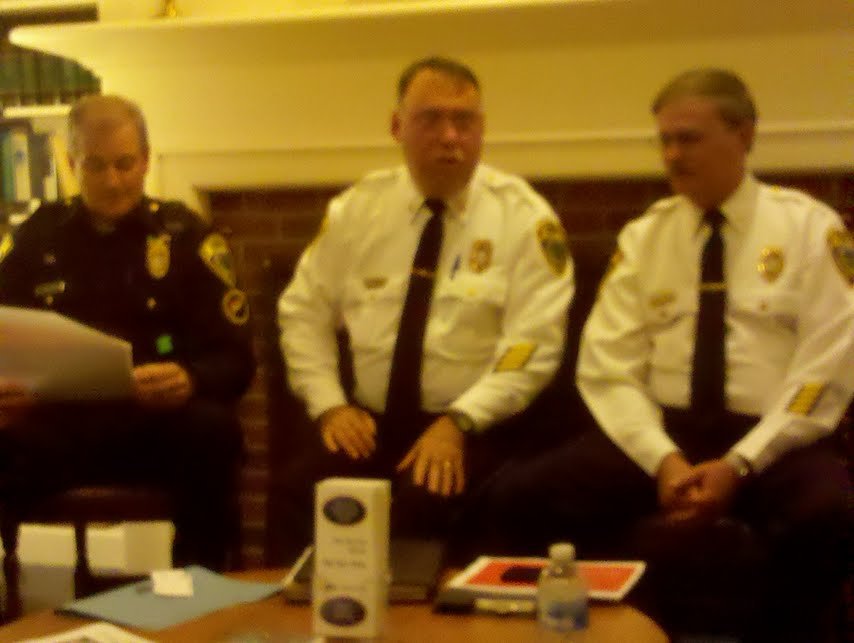Ben Behind His Voices Blog
One Family’s Journey from the Chaos of Schizophrenia to Hope
NEW!– the Ben Behind His Voices audiobook has been updated with a new intro, epilogue, and bonus material! – available only in audiobook form. (updated 2022)
Hear all of the original award-nominated memoir, and find out what has happened in the decade since. We continue our journey through crisis, help, and into hope.
Thank You, John Oliver. And I apologize.
Wow. John Oliver just summed up the problems with our mental health system in 11 minutes and 54 seconds - with plenty of room for punchlines as well. I know - seems like something that isn't humorous. But this segment provides more respect for mental health issues than so many others I've seen. Well-placed humor can do that.
Watch it here:
His opening statement, like all the facts in this comedy-in-truth piece, is correct:
"It seems there is nothing like a mass shooting to suddenly spark political interest in mental health."
Guilty as charged. My last post was, yes, sparked by yet another act of violence that I suspected would eventually point back to an unaddressed mental health problem in the shooter (and lack of support for his family). After receiving 2 comments which were too extreme to approve, I almost deleted the post today. It seems to have sparked stigma and judgment instead of the empathy and constructive outrage I had hoped to inspire. But I will let it remain in this thread, because while I myself may have jumped the gun on "judging" this shooter with expectations that attention should have been paid to his mental health way before a crisis, I also know that such judgment harms people like my son, who lives in fear that people will find out he has been diagnosed with schizophrenia. (for the record, his name and identifiable facts have been changed in the book and in my posts, with his permission to tell the story that way)
So let's be reminded of the following facts, in Rolling Stone's coverage of the segment:
"The aftermath of a mass shooting might actually be the worst time to talk about mental health," he argues. "Because, for the record, the vast majority of mentally ill people are non-violent. And the vast majority of gun violence is committed by non-mentally ill people." The host cites a February 2015 report by the American Journal of Public Health, which states that "fewer than 5 percent of the 120,000 gun-related killings … were perpetrated by people diagnosed with mental illness."
Yes. Let's not stigmatize those with mental health issues every time a crime like this occurs. But also, yes. Let's pay attention to our broken system - and fix it. Segments like John's, factual as well as (weird but wonderfully true) entertaining, point the way.
CIT International: A Mother's Gratitude
I have just returned from the CIT International Conference, where I met so many who are passionate about their crisis and mental health work - and though I came there to share the family view, I learned so much more than I offered. And yet - everyone who met thanked me for being willing to share our story, and the family point-of-view when crisis hits. Wow. (No, thank you...)
over 400 books personally signed with thanks to CIT folks!
Who was there? Police officers, mental health workers, detectives, Police Chiefs, Psychiatric Nurses, Psychiatrists, corrections officer, security guards, consumers, and family members like David Kaczynski, who spoke about his sibling experience as brother of the so-called "Unabomber" - though that relationship had so much more to it. David's love for his brother was clear, as was his agony over his brothers' illness: schizophrenia.
When my son Ben was in the first stages of recurring psychosis, when we were waiting for him to get "sick enough" to finally earn a bed in a psychiatric unit (don't get me started on this), we had many encounters with our local police officers while Ben - and we - were in crisis.
I am so happy that these officers were trained in crisis intervention - for their kindness and empathy toward Ben, Ali and me made our traumatic situation more bearable. And - even more importantly - their CIT (Crisis Intervention Training) made it possible to avoid the trauma-upon-trauma pile-up of emotions that could have escalated the crisis instead.
Lucky for us, we did not have to experience needless "super-escalation."
Lucky for us, our town's officers were either CIT-trained, or listened to the feedback and tips of those on the force who were.
To those who have taken the time to learn and choose Crisis Intervention Techniques over "Power" actions that are also an option, I thank you. Your kindness and willingness to empathize has made all the difference for this family.
Here's a radio news story on CIT in Connecticut (my home state) from NPR affiliate WSHU - where I sometimes work as classical music host or newscaster. Mark Herz also did an interview with me on Ben Behind His Voices.
Crisis Intervention Team Training Makes a Huge Difference
Officer Newkirchen, Deputy Chief Lyddy, Captain Smith
Early this month I attended the annual speaker meeting of NAMI Fairfield, a very strong affiliate in Connecticut. Our guests? Members of the local police force, one of its eight officers trained so far (as of the end of this month) for the CIT (Crisis Intervention Team).
Here a few things I learned:
All Police Academy graduates have had some training in Crisis Intervention. The CIT-trained officers, however, are have advanced knowledge and skills. Kind of like getting the heart specialist instead of the general practice doctor.
Police Officers really do care, and want to prevent crime rather than have to make arrests after the fact.
Police force hires only about 1% of those who apply. Wow.
Those with mental/emotional needs 7 times more likely to encounter law enforcement
CIT Actions now include follow-up with the families after an incident to gather key info and make sure they know about resources. Many are unaware of support groups and other places for info/help.
Families can pre-register information for the CAD (Computer Aided Database) in case of future incidents.
"No one likes to make arrests."
CIT Training helps us all. And these officers deserve our thanks. I know, personally, that without the empathy and understanding police officers showed when Ben was confused and symptomatic, his current life might be very different. Officers in the know took him to the hospital, took the time to call me for information, and handled Ben with respect and care. Thank you.
Any dollars spent on CIT Training saves lots of taxpayer dollars later. Untreated mental illness has a much higher cost, financially and emotionally, than treated mental illness. Ask my son, who is earning a salary instead of costing the state money for a long-term stay in a nursing home. Prevention works, and saves lives.




